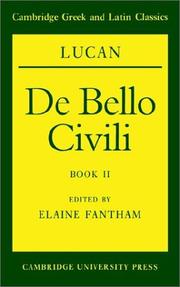Book
Year: 1497 Publisher: Milan [U. Scinzenzeler]
Abstract | Keywords | Export | Availability | Bookmark
 Loading...
Loading...Choose an application
- Reference Manager
- EndNote
- RefWorks (Direct export to RefWorks)
Book
Year: 1492 Publisher: Milan [P. de Mantegatiis, Cassanus]
Abstract | Keywords | Export | Availability | Bookmark
 Loading...
Loading...Choose an application
- Reference Manager
- EndNote
- RefWorks (Direct export to RefWorks)
Book
Year: 1492 Publisher: Venice [A. de Sancto Lucia]
Abstract | Keywords | Export | Availability | Bookmark
 Loading...
Loading...Choose an application
- Reference Manager
- EndNote
- RefWorks (Direct export to RefWorks)
Book
Year: 1807 Publisher: Argentorati ex typographia societatis
Abstract | Keywords | Export | Availability | Bookmark
 Loading...
Loading...Choose an application
- Reference Manager
- EndNote
- RefWorks (Direct export to RefWorks)
Book
Year: 1532 Publisher: Parisiis Simon Colinaeus
Abstract | Keywords | Export | Availability | Bookmark
 Loading...
Loading...Choose an application
- Reference Manager
- EndNote
- RefWorks (Direct export to RefWorks)
Book
ISBN: 0856681768 0856681555 Year: 1981 Publisher: Warminster Aris and Phillips
Abstract | Keywords | Export | Availability | Bookmark
 Loading...
Loading...Choose an application
- Reference Manager
- EndNote
- RefWorks (Direct export to RefWorks)
Classical Latin literature --- Roman history --- Epic poetry, Latin --- Pharsalus, Battle of, Farsala, Greece, 48 B.C. --- Pharsalus, Battle of, 48 B.C. --- Latin epic poetry --- Latin poetry --- Rome --- History --- -Epic poetry, Latin --- Pharsalus, Battle of, Farsala, Greece, 48 B.C
Book
ISBN: 9782251240053 2251240055 Year: 2016 Volume: 5 Publisher: Paris : Belles Lettres,
Abstract | Keywords | Export | Availability | Bookmark
 Loading...
Loading...Choose an application
- Reference Manager
- EndNote
- RefWorks (Direct export to RefWorks)
Avec le chant II de son épopée, Lucain nous plonge au cœur de la guerre civile à Rome, au premier siècle avant notre ère. Le poète traite plus particulièrement de la phase italienne du conflit, depuis l'avancée de César après la prise d’Ariminum jusqu’à la fuite de Pompée hors d’Italie, lors du siège de Brindes. Les premiers temps de la guerre civile sont l’occasion pour Lucain de présenter tous les acteurs du conflit : les deux généraux, César et Pompée, mais aussi Caton d’Utique, véritable icône de la sagesse stoïcienne, et le peuple de Rome, en proie à la panique. Cet ouvrage présente une nouvelle édition du texte accompagnée d’une traduction inédite et d’un commentaire continu, inséré au fil du texte, qui fait apparaître la poétique originale de Lucain et les enjeux politiques et philosophiques de l’histoire.
Civil war --- Historical poetry, Latin --- Guerre civile --- Poésie historique latine --- History and criticism --- Histoire et critique --- Lucan, --- Rome --- History --- Poetry --- Histoire --- Poésie --- Poésie historique latine --- Poésie --- History and criticism. --- Bataille de Pharsale, Pharsale, Grèce, 48 av. J.-C --- Poésie historique latine. --- Histoire et critique. --- Lucain, --- Lucain. --- Critique textuelle.

ISBN: 052141010X 0521422418 9780521422413 9781139166478 9780521410106 1139166476 Year: 1992 Publisher: Cambridge Cambridge University press
Abstract | Keywords | Export | Availability | Bookmark
 Loading...
Loading...Choose an application
- Reference Manager
- EndNote
- RefWorks (Direct export to RefWorks)
In this edition Professor Fantham offers the first full-scale commentary on the neglected second book of Lucan's epic poem on the war between Caesar and Pompey: De bello civili. Book II presents all three leading figures - Cato, Caesar and Pompey - in speech and action. It expresses the moral and political dilemma of civil war and portrays Pompey's loss of authority during his withdrawal from Italy in language designed to evoke and cancel Virgil's heroic presentation of the foundation myth of Aeneas. In her introduction, Professor Fantham gives a general account of Lucan's life and work and continues with a discussion of his narrative and interpretation of Caesar's military 'invasion' of Italy covering Books I and II, a survey of language, style and metre, and a brief history of the text. The commentary, besides supplying all necessary grammatical explanation and some assistance with translation, aims to provide the political, historical and geographical background to Lucan's epic narrative.
Epic poetry, Latin --- Poésie épique latine --- Rome --- History --- Poetry --- Histoire --- Poésie --- Pharsalus, Battle of, Farsala, Greece, 48 B.C. --- Epic poetry, Latin. --- Poetry. --- Latin epic poetry --- Latin poetry --- -Poetry. --- Pharsalus, Battle of, Farsala, Greece, 48 B.C --- Poésie épique latine --- Poésie --- Rim --- Roman Empire --- Roman Republic (510-30 B.C.) --- Romi (Empire) --- Byzantine Empire --- Rome (Italy) --- Arts and Humanities --- Pharsalus, Battle of, Farsala, Greece, 48 B.C. - Poetry
Book
ISBN: 8804407425 8804412283 9788804412281 9788804407423 Year: 1995 Volume: 89-90 Publisher: Milano Mondadori
Abstract | Keywords | Export | Availability | Bookmark
 Loading...
Loading...Choose an application
- Reference Manager
- EndNote
- RefWorks (Direct export to RefWorks)

ISBN: 8800812953 9788800812955 Year: 2000 Publisher: Firenze Le Monnier
Abstract | Keywords | Export | Availability | Bookmark
 Loading...
Loading...Choose an application
- Reference Manager
- EndNote
- RefWorks (Direct export to RefWorks)
Rome --- History --- Poetry --- Rome - History - Civil War, 49-45 B.C. - Poetry

 Search
Search Feedback
Feedback About UniCat
About UniCat  Help
Help News
News